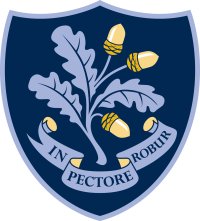Sunday
Feb032013
Session Four (Year Eight) - Saturday 2nd February 2013
 Sunday, February 3, 2013 at 7:21PM
Sunday, February 3, 2013 at 7:21PM  Twenty nine of our Emerging Scholars headed to South Kensington and one of the elite universities in Europe for a Robotics and Engineering workshop and a competition for the best team of Emerging Scholars.
Twenty nine of our Emerging Scholars headed to South Kensington and one of the elite universities in Europe for a Robotics and Engineering workshop and a competition for the best team of Emerging Scholars.We met up in the Reach Out Lab (ROL) of Imperial College’s Skempton Building which provides plenty of space for demonstrations, lab work on benches and plenty of floor space for testing robots.
Simon Reynolds from Exscitec led the opening presentation and we learned, through discussion, what a robot was. Sensors are an important element of any robot which means that if we have a clever, decision making washing machine that would make it a robot. We learned there was still some disagreement amongst scientists as to exactly what a robot was but that the more autonomous (independent) it was, the more robotic it was. We also talked about the social implications of robots replacing humans in certain jobs (which I am sure will help spur the girls to higher aspirations in their careers).
We learned that robots can do parts of heart surgery better than humans but that the ones that do are very expensive and we still like humans to help control them.
The girls formed three teams – Red, Yellow and Blue, supported by John, Ben and Kutwing who are third and fourth year undergraduates at Imperial College studying physics, mechanical engineering and aeronautical engineering. The mentors were able to share their experiences of life at a great university and what you need to do to get there.
“By next week I will have attempted to tell all my family and friends about all the great things you can do at Imperial College.”
The three teams broke into sub teams of two or three to work with BoE-bots. BoE-bots have a body (the mechanical bits) and a brain (the microcontroller on the circuit board – in this case BS2, Basic Stamp 2).
We used a program called the Basic Stamp Editor on the laptops to program (write code) to give the BoE-bots instructions. We started by typing in a test program, written by someone else, to give us a better feel for programming. The first program ‘told’ the robot to go forward and then to turn around.
“I have learned how to program a robot and for it to follow simple instructions. I have worked well in a team but also taken charge.”
We then started experimenting with the program, learning all about loops and what different instructions meant and did. We learned some of this by trial and error, others by calculation and more still by getting puzzled and asking questions at the right time to learn the answers. We eventually programmed the robot to go forward and turn and map out a one meter square.
“I will not give up when a problem seems difficult but stay focused and solve it.”
After a very nice lunch in the Library cafe we saw the competition course. This would involve making the robot go forward, backward, cross lines, turn and, hopefully, park at the end. We practiced long and hard, changed the programme, tested, changed it again to correct mistakes and finally were ready for the competition.
Each of the Red, Yellow and Blue teams had three or four sub teams and there was a point scoring mechanism to decide the best team. The Yellow team won.
The students, staff and mentors had a very enjoyable day. We spent a lot of time trying new things, coming up with problems and solving them and learning how to keep going when things don’t go right. We worked as a team to complete a variety of engineering based challenges, learnt basic programming techniques, worked alongside undergraduate students to learn about university life and discovered how scientific methods and processes can be used in the real world.
“I will try new things without giving up around school and at home.”
After our usual reflection time, we all headed back towards East London to go home.
Next stop for Year Eight is Session Five – Language and Lingustics, back at Forest School on Saturday 9th February.
ESIP would like to thank the Ogden Trust for supporting the Imperial Robotics visit.
 ESIP Forest | Comments Off |
ESIP Forest | Comments Off | 



